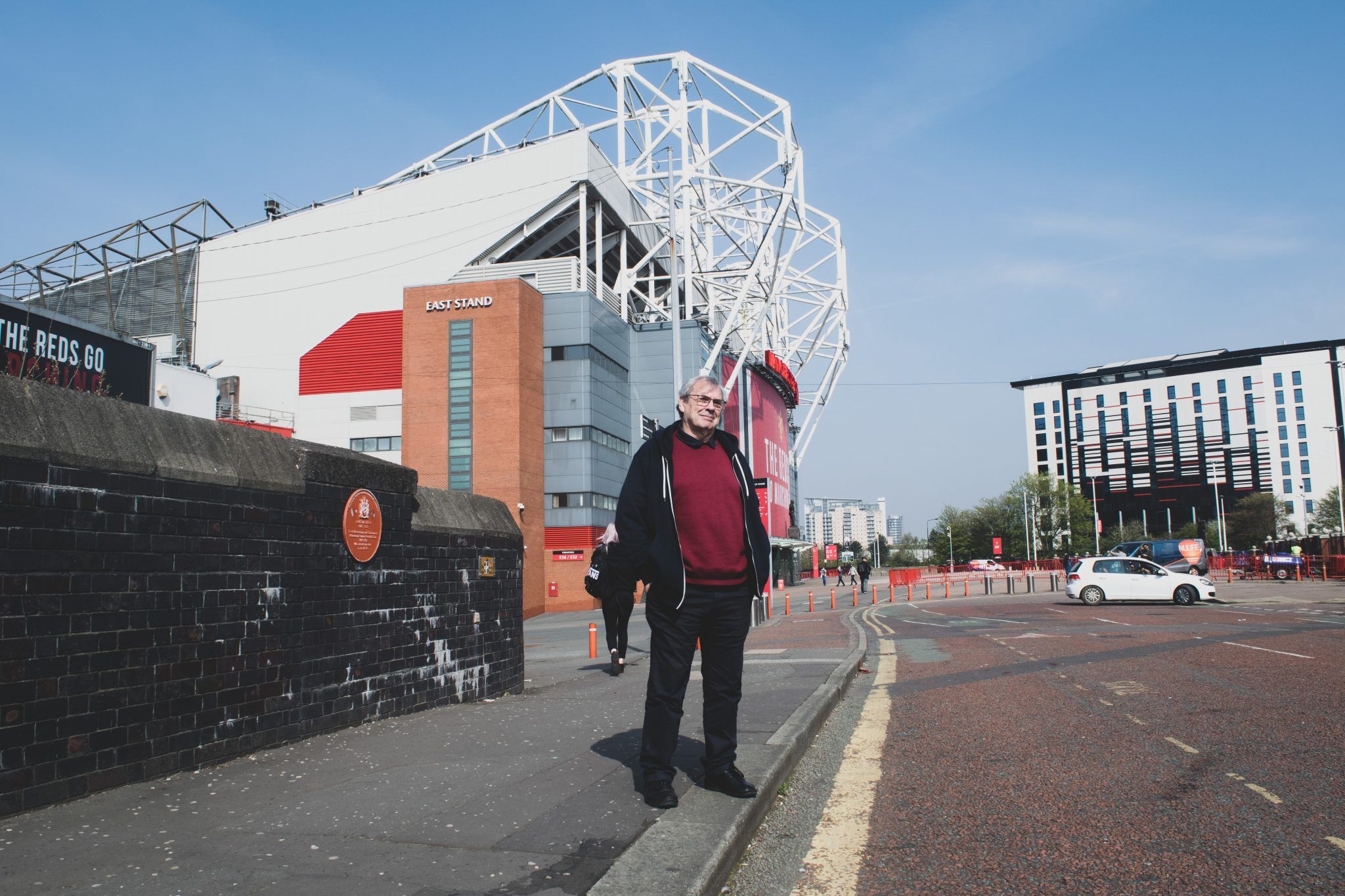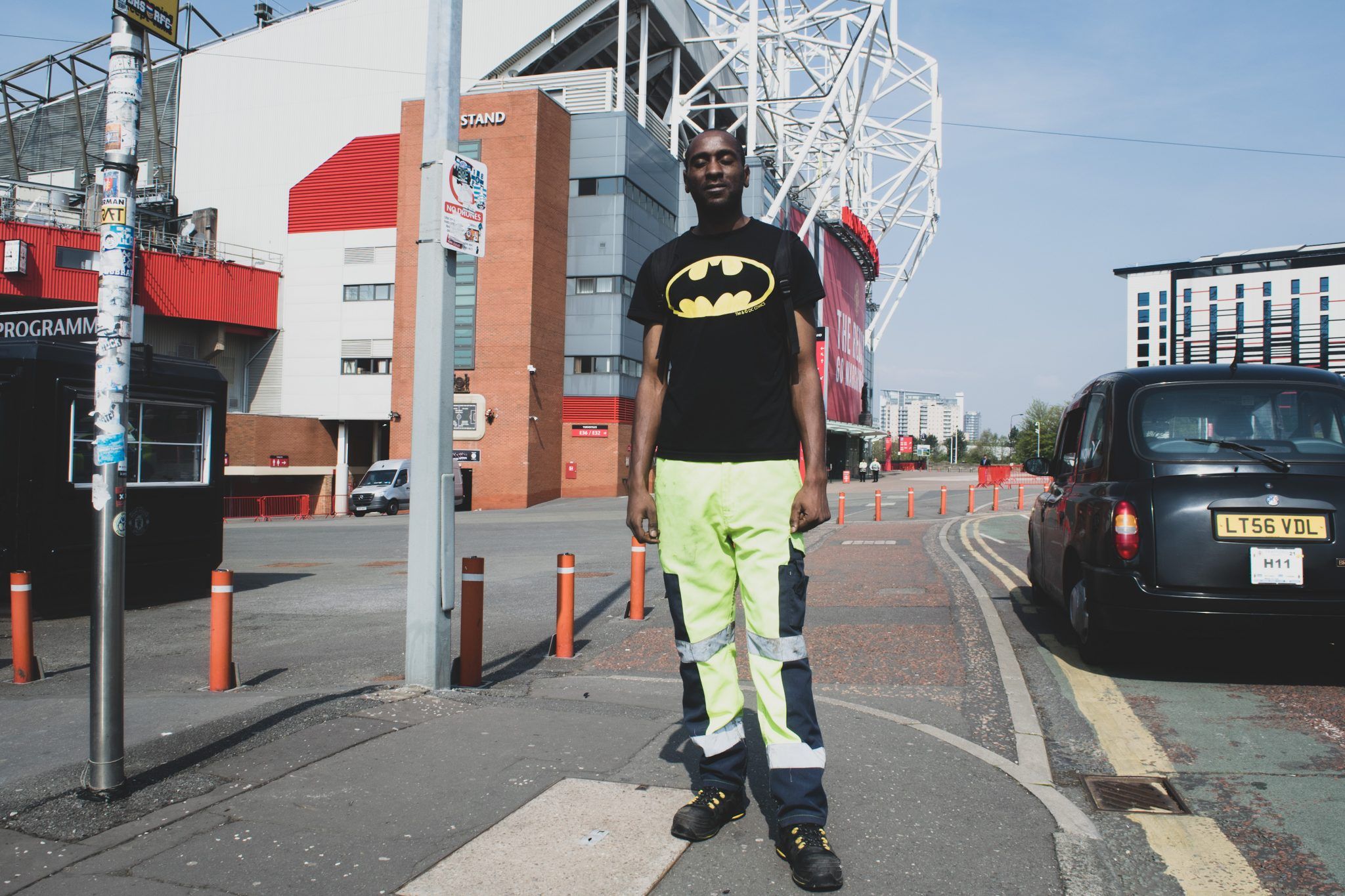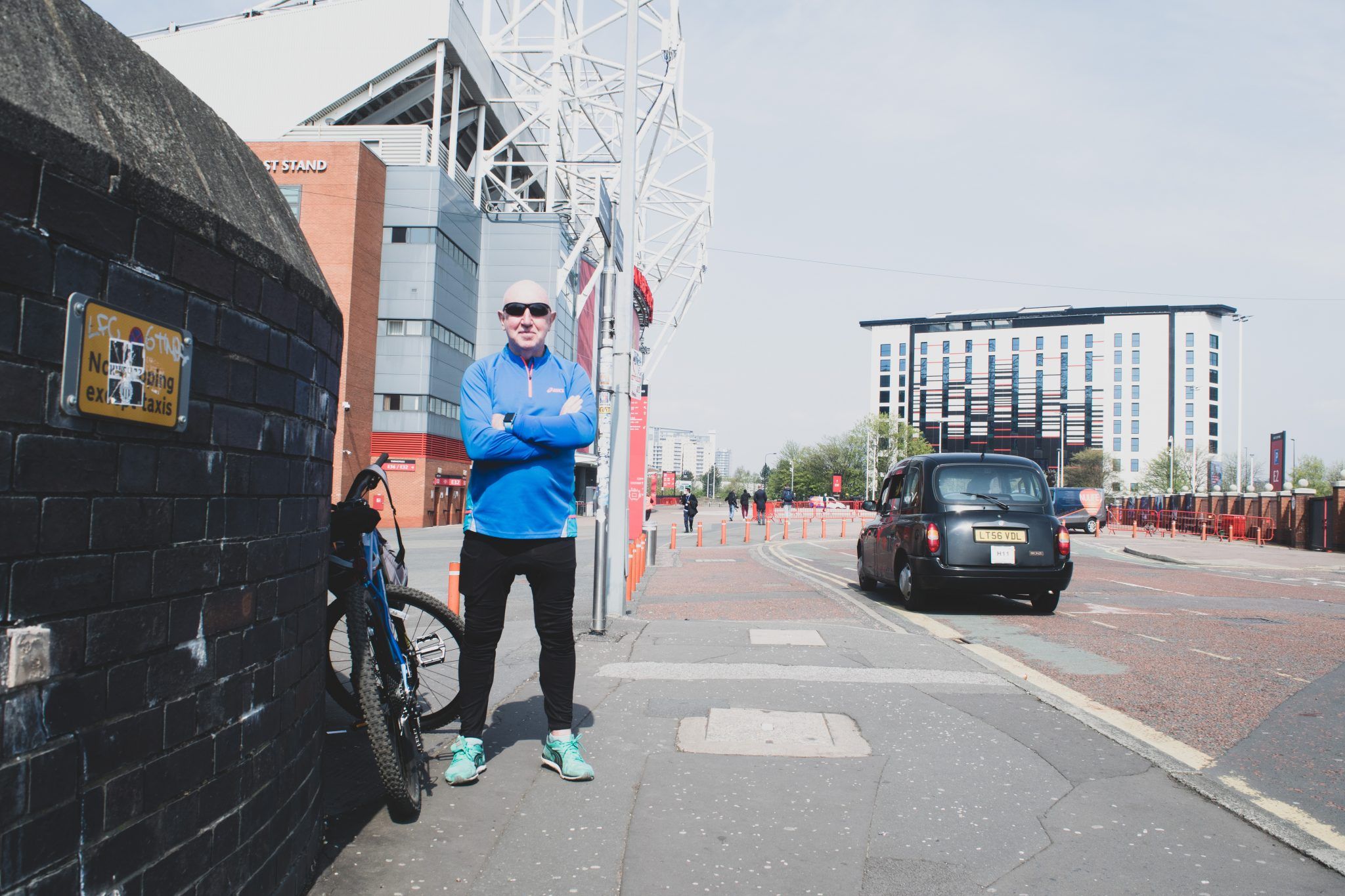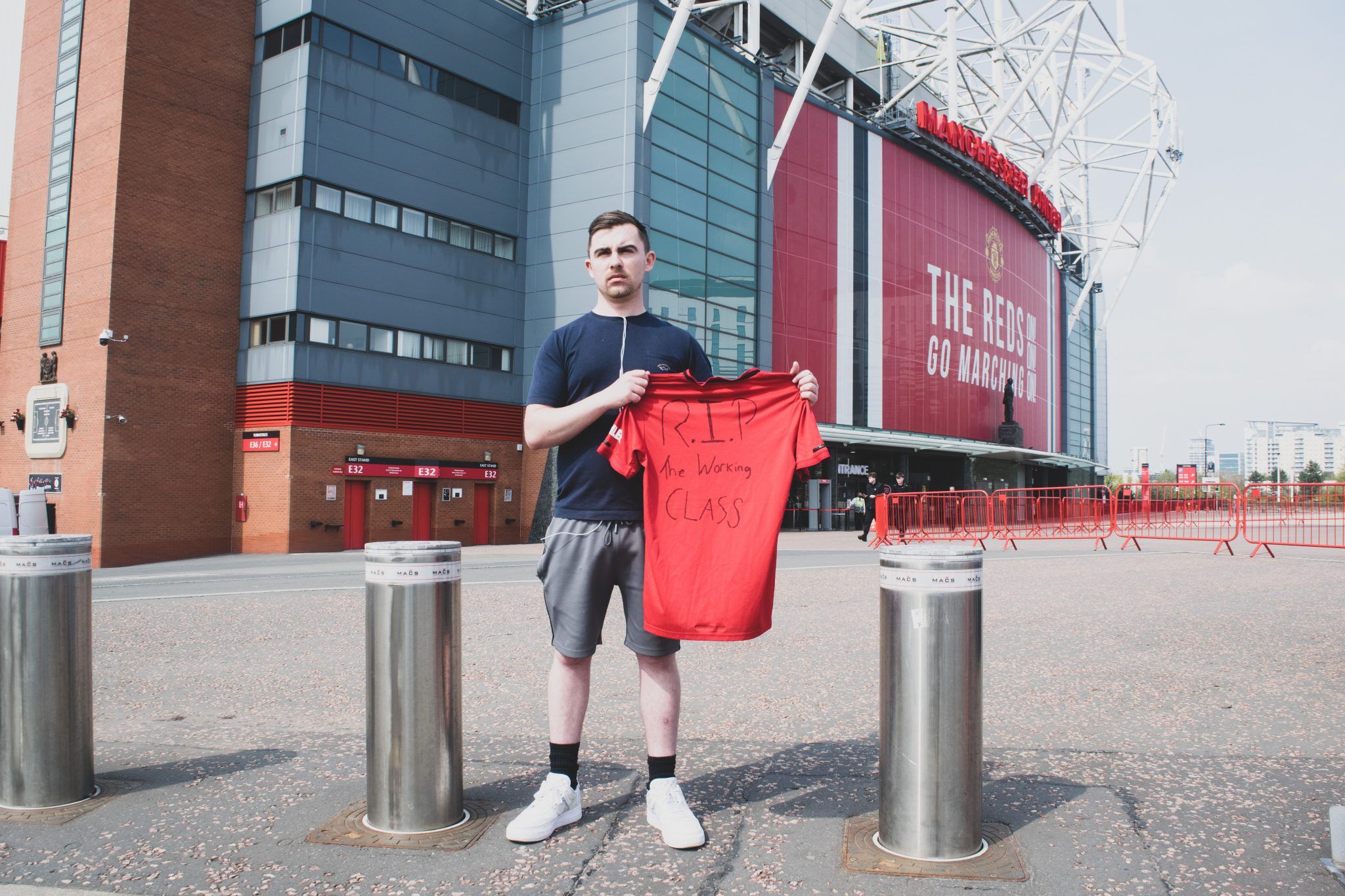

Share
21st April 2021
05:38pm BST

 Duncan was one of a group of United supporters who went on to found FC United of Manchester, the breakaway club formed in response to the Glazers' arrival. Completely severing the links with the club you love is, however, a complex matter. Some have found the temptation of returning to take their seat back at Old Trafford too much to resist. Duncan, though, has refused to cave in.
The events of the last few days have opened up old wounds. Word that Manchester United were one of the twelve clubs behind the proposed European Super League came as no surprise to those who, for a long time, have been warning against the Glazers' long-term intentions for the club and brazen disregard for supporters. That Joel Glazer, famously reluctant to engage with United fans during his family's ownership, has been one of the leading figures of the controversial new venture - happily telling the world how, actually, it will only be a good thing for football - was a final insult.
"The Glazers are the scum of the earth," Duncan says. "They're leeches. Parasites. This is what we have been talking about for 16 years."
Beyond Duncan, the stadium is closed off on three sides by temporary railings, patrolled by several security staff, who are quick to ask if they can offer help if anyone strays too close. The railings, they say, are a legacy of the last lockdown, nothing to do with the Super League news and any hostile fan reaction the news might trigger.
It's a typical midweek morning at Old Trafford: quiet, with the odd passer-by stopping for photos or a quick trip inside the Megastore at the foot of the East Stand - the only part of the ground accessible to the public. There's little in the way of signs of the small protests that took place here the night before. The banners and t-shirts bearing anti-Super League and anti-Glazer sentiments have been ripped down from the walls opposite the East Stand and are nowhere to be seen. The remains of a few burnt-out red flares lie by the kerb on Sir Matt Busby Way.
"They won't tell you what it was really like down here last night," says Anthony, nodding at the security staff. "Trust me though, there were a few people making quite a bit of noise last night."
Anthony has just clocked off work for the day. He's from Old Trafford, growing up a stone's throw from the turnstiles, and is passing the stadium on his way home.
"It’s the deceit of it all that gets to me," he says. "This whole [Super League] plan has been done behind everyone’s back. It’s pure greed: football is secondary and it's all money."
Anthony tells me his very first memory of United: Mark Hughes' volley against Oldham in the 1994 FA Cup semi-finals.
"It felt like it was yours then, you know?" he says. "I know there’s a lot of people around the world who are fans of this club. I understand that. But those who live close by have to have a voice in this. It was ours first.
"We don't want a European Super League. I'm not interested in my team flying to wherever in the world to play Madrid every week. Am I going to go to that game? No! I've got work the next morning. I'd rather be here, watching my team play City or Liverpool or Leeds. These games matter to me."
Duncan was one of a group of United supporters who went on to found FC United of Manchester, the breakaway club formed in response to the Glazers' arrival. Completely severing the links with the club you love is, however, a complex matter. Some have found the temptation of returning to take their seat back at Old Trafford too much to resist. Duncan, though, has refused to cave in.
The events of the last few days have opened up old wounds. Word that Manchester United were one of the twelve clubs behind the proposed European Super League came as no surprise to those who, for a long time, have been warning against the Glazers' long-term intentions for the club and brazen disregard for supporters. That Joel Glazer, famously reluctant to engage with United fans during his family's ownership, has been one of the leading figures of the controversial new venture - happily telling the world how, actually, it will only be a good thing for football - was a final insult.
"The Glazers are the scum of the earth," Duncan says. "They're leeches. Parasites. This is what we have been talking about for 16 years."
Beyond Duncan, the stadium is closed off on three sides by temporary railings, patrolled by several security staff, who are quick to ask if they can offer help if anyone strays too close. The railings, they say, are a legacy of the last lockdown, nothing to do with the Super League news and any hostile fan reaction the news might trigger.
It's a typical midweek morning at Old Trafford: quiet, with the odd passer-by stopping for photos or a quick trip inside the Megastore at the foot of the East Stand - the only part of the ground accessible to the public. There's little in the way of signs of the small protests that took place here the night before. The banners and t-shirts bearing anti-Super League and anti-Glazer sentiments have been ripped down from the walls opposite the East Stand and are nowhere to be seen. The remains of a few burnt-out red flares lie by the kerb on Sir Matt Busby Way.
"They won't tell you what it was really like down here last night," says Anthony, nodding at the security staff. "Trust me though, there were a few people making quite a bit of noise last night."
Anthony has just clocked off work for the day. He's from Old Trafford, growing up a stone's throw from the turnstiles, and is passing the stadium on his way home.
"It’s the deceit of it all that gets to me," he says. "This whole [Super League] plan has been done behind everyone’s back. It’s pure greed: football is secondary and it's all money."
Anthony tells me his very first memory of United: Mark Hughes' volley against Oldham in the 1994 FA Cup semi-finals.
"It felt like it was yours then, you know?" he says. "I know there’s a lot of people around the world who are fans of this club. I understand that. But those who live close by have to have a voice in this. It was ours first.
"We don't want a European Super League. I'm not interested in my team flying to wherever in the world to play Madrid every week. Am I going to go to that game? No! I've got work the next morning. I'd rather be here, watching my team play City or Liverpool or Leeds. These games matter to me."
 As Anthony heads home, a cyclist stops by. He's caught the end of our conversation and shares the same concerns.
Ged Miley was born and raised in Stretford, just around the corner. He's loved United "from the cradle", first attending a game at Old Trafford with his father in sixties. He now has a season ticket beside his son and grandson and his voice cracks as he tells me this. He admits to being a little emotional when he talks about it. Football, the bonds it forges between generations of families, has a habit of doing that.
"From the moment they came here, this has been the plan, to find a way of using this club - our club - to make as much money as they possibly could, even if it meant bulldozing their way through the people who care about it the most to make it happen. This has always been the endgame."
Ged has unclipped his helmet, propped his bike up against a wall and is standing next to the retractable road bollards at the perimeter of Old Trafford property. We're not permitted to speak to him on the other side of these bollards, as one of the security staff reminds me.
As Anthony heads home, a cyclist stops by. He's caught the end of our conversation and shares the same concerns.
Ged Miley was born and raised in Stretford, just around the corner. He's loved United "from the cradle", first attending a game at Old Trafford with his father in sixties. He now has a season ticket beside his son and grandson and his voice cracks as he tells me this. He admits to being a little emotional when he talks about it. Football, the bonds it forges between generations of families, has a habit of doing that.
"From the moment they came here, this has been the plan, to find a way of using this club - our club - to make as much money as they possibly could, even if it meant bulldozing their way through the people who care about it the most to make it happen. This has always been the endgame."
Ged has unclipped his helmet, propped his bike up against a wall and is standing next to the retractable road bollards at the perimeter of Old Trafford property. We're not permitted to speak to him on the other side of these bollards, as one of the security staff reminds me.
 A few yards away, the memorial plaque to those who died in the Munich Air Disaster can be seen over Ged's right shoulder, red and white carnations either side of it.
A few yards away, the memorial plaque to those who died in the Munich Air Disaster can be seen over Ged's right shoulder, red and white carnations either side of it.
“I think about coming here the first time, being sat on a barrier by my dad in the scoreboard end," Ged continues. "It’s a world away from that now. The soul is being ripped out of the place, whether this thing happens or not.
"[Ed] Woodward, the Glazers, they don’t even have the decency to attempt to speak to us fans. It should belong to us, not them, but our voices mean nothing. This club was formed by working people. All this makes a mockery of those roots and all that’s gone before. "Look at the Munich memorial over there, it spits on the grave of those who died there. The history, the tradition, the people. That’s important. You can’t - I hope - just forget all that." This is a common theme of all of those who stop and speak. The majority of those who pass by on this morning are local to the club and don't mind describing themselves as part of an older generation of supporters. They are willing to reel off their memories of Best, Law and Charlton, of how those awful days in February 1958 jolted an entire city. Married couple Anne and Dominic, from down the road in the Stockport, are no different. Dominic first came to Old Trafford in 1957. There has been, he says, a disconnect between this generation of supporters and the club from the day the Glazers arrived. "It changed the way a lot of us felt when they showed up," he adds. "I’ve been a fan through and through and I look at them, what they’ve already done, how little we matter, and it makes me sick. We all knew they didn’t come here for football, but for it to reach this is something else."
Anne adds: "We’ve all been so powerless to prevent it. That's what's so upsetting. We've memories here stretching back decades, but it doesn't mean a thing."
Minutes later, Connor Kennedy, another United supporter from Stretford, arrives. He has brought with him a United shirt, its badge crossed out by two plasters and the message 'RIP the working class' scrawled on the back in a black Sharpie. He, too, is well versed in the club's history and speaks passionately at the need to protect it, not use it as a gimmick to attract more investment.
Connor is probably the youngest of those who stop and speak and, at 26, is not far from being in the age group Florentino Perez laughably suggested are no longer interested in the sport.
"This isn't true of anyone I know, my age or younger. I suppose this is the sort of thing rich people say when they try and justify ideas like this. Maybe if they say it to themselves enough, they believe it.
"Look around at the world of football at this moment. We need the stability of the structure to help the other clubs too - the clubs that will never get invites to a Super League.
"Joel Glazer talks about this being good for the pyramid. It's bollocks. Money won't trickle down to other clubs, it will just be trickling down to other members of the Glazer family and their mates."
"It changed the way a lot of us felt when they showed up," he adds. "I’ve been a fan through and through and I look at them, what they’ve already done, how little we matter, and it makes me sick. We all knew they didn’t come here for football, but for it to reach this is something else."
Anne adds: "We’ve all been so powerless to prevent it. That's what's so upsetting. We've memories here stretching back decades, but it doesn't mean a thing."
Minutes later, Connor Kennedy, another United supporter from Stretford, arrives. He has brought with him a United shirt, its badge crossed out by two plasters and the message 'RIP the working class' scrawled on the back in a black Sharpie. He, too, is well versed in the club's history and speaks passionately at the need to protect it, not use it as a gimmick to attract more investment.
Connor is probably the youngest of those who stop and speak and, at 26, is not far from being in the age group Florentino Perez laughably suggested are no longer interested in the sport.
"This isn't true of anyone I know, my age or younger. I suppose this is the sort of thing rich people say when they try and justify ideas like this. Maybe if they say it to themselves enough, they believe it.
"Look around at the world of football at this moment. We need the stability of the structure to help the other clubs too - the clubs that will never get invites to a Super League.
"Joel Glazer talks about this being good for the pyramid. It's bollocks. Money won't trickle down to other clubs, it will just be trickling down to other members of the Glazer family and their mates."
 Connor says repeatedly that he knows this is a problem far bigger than his club. Amidst the anger, he has been pleased by the reaction of football fans to Super League. For the first time he can recall, allegiances don't matter quite so much as they once did.
Connor says repeatedly that he knows this is a problem far bigger than his club. Amidst the anger, he has been pleased by the reaction of football fans to Super League. For the first time he can recall, allegiances don't matter quite so much as they once did.
“I’ve got Scouse friends, I’ve got City friends," he says. "We enjoy the rivalry and the banter but we’re all together on this. You can’t just ignore local fans and the communities these clubs belong to.
"This," he says, "is bigger than rivalries."
Connor is asked to pose for pictures for a couple of press photographers who have started to congregate outside Old Trafford. It's early afternoon at this point. The Super League still feels like an inevitability, something that, no matter how loud the dissenting voices grown, nothing will stop a band of incredibly wealthy men from getting their way. Fortunately, by midnight, the scenario has changed dramatically. All six English clubs have officially withdrawn from the proposal. Players have released statements condemning the move. At United it has been confirmed that Ed Woodward, appointed by the Glazers after helping them broker the deal for the club all those years ago, will leave the club at the end of the year. The resignation had already been planned, the statement says, but given the timing, few are buying that. It's been an abrupt and unexpected end to a chaotic 72 hours, one which shone a spotlight on the ugliest side of the modern game. The Super League may be dead - at least for now - but the way in which the plan was executed in secret by the self-serving parasites who have been allowed to sink their claws into some of the planet's leading clubs only highlights the utter contempt they have for the communities that helped build them into what they are. Football has been on a collision course with this moment for a long time. The warning signs were all there - particularly in the last 16 years at Old Trafford. The sense of relief is understandable given a near miss of this scale, but the important thing is what happens next. Football supporters and the authorities in place to protect their clubs can no longer stand by and allow these ruthless operators to have their way. It is a stark wakeup call, a moment when everyone who cares about the future of the sport should be jolted into action. Protest. Boycott. Push for legislation. Get them out. Reclaim the game. "Remember this," Ged said, earlier in the day. "Remember what they've done to us and how they actually feel about us all. Whatever happens next, these people need to go. We need to find a way."Explore more on these topics: